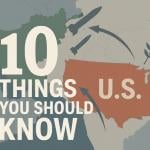 This post is by my friend, Josh Ross @joshualouisross, who is author of the book Scarred Faith and preaching minister at the Sycamore View Church in Memphis.
This post is by my friend, Josh Ross @joshualouisross, who is author of the book Scarred Faith and preaching minister at the Sycamore View Church in Memphis.
Remembering Love
What cities come to mind when you think of the most evil, sexually charged, immoral, idolatrous places in the 1st century?
You know what the Bible calls most of those cities? They are called the titles of some of the major books in the New Testament.
A lot of time, attention, and ink were given to strengthen and grow the churches in cities like Corinth, Ephesus, and Rome. Not one time in those letters does Paul suggest that people who were serious about Jesus needed to abandon those cities in order to establish permanent residence in places that were more “safe” or “family friendly.” Instead, the church was equipped to engage those places. In fact, the question wasn’t if they would engage their city with purpose; the question was how they would. (In Ephesians, the question wasn’t if they would, but what to wear as they did. And they answer was the armor of God is what equipped them to press into the city.)
Jonathan Storment has spent the last two weeks on this blog writing about both the beauty and challenges of covenantal love. Did you know that the only book in the New Testament to not use the word love (not even once) is the book of Acts?[1] Jonathan and I are from the same faith tradition, and there’s not a book that our tradition knows better than the book of Acts. Our group knows Acts. And at times, in some places, our faith tradition has been able to quote, inform, and teach on Acts, yet we have struggled to embrace the fullness of this one word that is absent from Acts: love.
And I bet our faith tradition isn’t the only one.
Paul spends more time talking about love with the churches in Rome, Ephesus, and Corinth than any other letter he wrote. What Paul wanted these new believers to understand is that Jesus acted in love, that love freed them from sin, and that love propelled them to live with purpose as they moved into the future. Love set them free to be a certain kind of people—kingdom people.
Love was about action, but it was just as much about memory.
When I first moved to Memphis nearly 7 years ago, I wanted to get to know the good and bad of my new city. One Friday, I did a ride-along with a police officer. The first stop we made was to visit a guy who had been in and out of prison for 16 years. The criminal was working with the police department to help solve a few cases hoping that it may reduce his sentence.
Towards the end of our time, I asked him, “Listen man, I’ve heard that for 66% of the inmates at 201 Poplar (the city jail in Memphis), this is at least their 6th time to be in there. So, why would people who have been set free, make decisions that would send them right back into bondage?”
He looked down for a few moments. Then he took a deep breath before looking me in the eye and saying, “Pastor Josh, I guess when it comes down to it, me and some of my friends don’t know what it means to be free. We don’t know what freedom looks like.”
And I wish I would have told him that I preach in front of people every Sunday who would say the same thing.
If the story of love and freedom isn’t remembered, the heartbeat of love and freedom slowly fades.
We know a lot of the church in Ephesus because of Acts 18-20, the letter known as Ephesians, 1 Timothy, and also Revelation. Few churches grew like that church did. Not only was Paul deeply connected to them, so was John in Revelation. That church was taught to love, to press into the city to make a difference, and to live as people who were full of the Spirit of God. And it worked!
Yet, Jesus had a message for the church of Ephesus in Revelation 2. He praised them for their good deeds and for how they didn’t tolerate evildoers. He affirmed their patient endurance. But Jesus had this to say, “But I have this against you, that you have abandoned the love you had at first.”
The first mention of love in Revelation comes in 1:4, and it is how Jesus “loves us and freed us.” Yet, the second mention of love is Jesus telling the church that it is something they have forgotten. The church had grown. The church did good stuff. The church rebuked evil. Yet, they forgot about love. And for Jesus, this isn’t a story worth living. It is a story to turn from.
The statement by Jesus is followed by one word, “Remember!”
The best way to move forward isn’t to forget the past, but to remember the past in healthy ways. This is how love works. Love roots us in a story that has a past, present, and future. And when we neglect to hold together the past, present, and future of love then our hearts, communities, and impact on the next generation greatly suffers.
Bob Goff wrote a book nearly 2 ½ years ago that is still in the top 500 books on amazon. Love Does has been more than a book people have read; it has been a movement people have entered into.
Yes, Bob is a great guy. Bob and Jimmy Fallon share a common quality that both are guys nearly every human being feels like they could be best friends with, right? Yes, it is a book full of personal stories that people connect to, yet Bob points us to something that deep in our bones, we ache for. And that is love that means something.
There is also a thread weaving throughout Love Does that people connect to as well, which is love has legs. It moves. Love doesn’t tread water. It doesn’t stay still. It presses into the world.
And you know what? Love does have legs, but love also needs a good memory. It’s the memory that roots us in covenant love, which is far greater than we could ever ask or imagine.
[1] I am not claiming that Luke failed to use the word “love” intentionally. I’m just making an observation.












